
 |
|
|
Click bars for Navigation ---- ---- Published Books by William Hermanns - Click cover image for it's webpage. 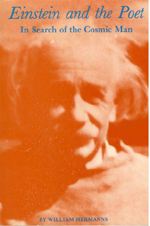 --- 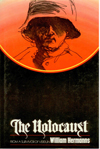 Out of print books available - email us Translate page
---
Like our facebook page WilliamHermanns to get website update notices and some uploaded poetry that talks to your soul. --- Please help support this website. We'll continue to upload more gems from the archives. See Contact Page to communicate with us. To My NeighborSeelentränenNavigationContact / Kontakt |
||||
|
|
Poem of William HermannsP511
God,
the Uniform and I
God is cosmic, hence here, too, above, below, without, within. But I, so young and handsome, feel I have His will, His fist, His chin. Is not our Kaiser God on earth! Announced: "I'll end this rot and strife. The world is sick, has to be healed now by the German way of life." And how my ego craving glory drives me to hang his painting up above my bed. "Come Majesty, make war. I'll drink your hero's cup." My aunt, her name Veronica, who brings me up an orphan child, sits at my bedside every night: "Come pray, with God be reconciled. "Your Kaiser's crown through ages past has lured enough our youth. Don't fall into this trap as did our fathers. Write poems, that's your inner call. "The uniform makes man a beast. Read Goethe, Schiller, Heine, read. To hate our neighbor, what a curse! They're human, too, the French you meet." What means to me a little prayer each night with folded wrinkled hands? The world needs healing by us Germans. Exist there holier demands? O glorious fate, I'm German born! My eyes with nineteen see a chance. A million boots like hammer strokes pass my aunt's door. She with one glance discovers how they sweat, are thirsty. Her maids bring pails with water out. An officer jumps from his horse to kick pails over with the shout: "You dare break German discipline? We march to war, and France shall fall." He sees me. "And you come along, sing with us 'Germany over all!'" "Good-bye, my Aunt, I volunteer. Good-bye, a thousand times good-bye. Will soon become an officer, return with monocle on my eye." She weeps and presses in my hands a pocketbook with Psalms and prayers: "Read in it that you do not share the curse of uniformed soothsayers." I, pupil of a privileged school, can join an officers' training course with hundred other volunteers. A general speaks, high on his horse: "You, officer epaulette candidates, crave for the battlefield. O bliss, to smite the French, so vice debauched, so full of wine and syphilis!" This two months training makes hate sprout. I join the war in the Argonne. The Kaiser says: "At Christmas time we're home again - the war is won!" Behind the front in roofless ruins of churches, ministers or priests bless us, for God is with us Germans to fight the godless Gallic beast. But what is with the Kaiser's promise, at Christmas we'd be home again. A general gives the solemn answer: "The war prolongs, but not in vain. "Behold the Argonne, which is now ours! Are you not Germany's chosen sons? The burning trees are candles lit; and Christmas carols sing our guns. "'O Germany over all,' how glorious when you march through the towns that burn! The Kaiser will make peace in Paris. The coal mines in Lorraine we earn." Our Crown Prince, Lord of our Fifth Army, commands now the offensive war: "No more trench warfare; march and conquer Verdun! Let German glory soar!" Good-bye Argonne forest, good-bye. And smoke to ashes! German boots will change you, Fortress of Verdun. Yea, tremble when our cannon shoots. "Your glory is much more than death," the Crown Prince says. "Your glory leads to monuments that hand in gold your names to youth as future seeds." We march through villages and towns. Each forward step French bullets dread. We leave behind us smoke, blood, rats. French syphilis loves now the dead. Yet comrades tell me while we rest in shell holes that the Crown Prince lives in elegance behind the front. A blond child to French girls he gives; distributes cigarettes to soldiers, mud-soaked and tired, when marching by; the noble officers get dinners and talks of victory - we die! One comrade, forty years he's old, shoots through his hand with his own gun a bullet. I give him first-aid. He creeps back, thinks his war is done. But fate let him not join wife, child. He creeps, the rosary 'round his neck, ten shell holes back to touch a mine. His hope turns to a blood-soaked wreck. Trained horses carrying bread to us are torn to pieces with their leaders. French airplanes watch each move and are, for us, cut from the rear, death-feeders. A miracle: With greenish gas clouds our artillery covers the French line. Loudspeakers cry, "Out of your shell holes. At last you'll get French bread and wine!" We jump from shell holes up the hill toward Fort Souville, and suddenly our feet have no more ground beneath. What climbs out cries, "Turn back and flee!" But now Verdun's fortress Tavannes sends heavy shells like giant birds, tears up big holes, and through the air fly uniforms and blood-soaked shirts. Have French defenders syphilis? What have we Germans? Hunger, lice, and over our dead bodies now the Kaiser's glorious name will rise. I, corporal, machine gun feeder, must backward creep, warn artillery. They aim too short, kill our own soldiers. But now the powers of hell want me. The battlefield, huge shells tear open: Earth moves up, down - so I, the rat. The French attack. The Kaiser's glory, has it become a vampire-bat, hangs in Verdun's Cathedral towers to watch us, soon to suck our blood? My comrade cries, "Down with the Kaiser! Makes us, his soldiers, stinking mud." He once announced: "We are in war. The Bible word, Thou shalt not kill, shall not be mentioned in the church. Our German mission we fulfill." Yet his own war chaplain each day reads holy words to him. I wonder: I, volunteer, have played this game with God and man and hell and thunder. My officer dream with monocle to see France crushed beneath my boot ends in a crater. Big rats look down from the rim at me, their loot. Two comrades, mother tongue is Polish, forced in the German grey field shirt, creep through the dark, hole after hole: French leaflets lure them to desert. Our artillery again shoots short. I feel still some morality to creep toward the rear to warn. A giant earth-wave buries me. I dig myself half out, sit up, the right hand stretched to heaven high: "God save me, and I will serve You as long as I live. Let me not die." Is God French, too? French Africans, the black-skinned Spahis, storm and dump me down a crater, grip me, plunder watch, money, ring, then out they jump, stand on the rim, speak in their language. One takes at me another look, climbs down to search again my pockets and finds my little prayer book, asks in bad French what this book means. I kneel down in the mud to pray. He calls up to the rim: "Don't shoot!" then pulls me out. God has his way. God let me live in French captivity. In 1920 I return alive, will be a League of Nations diplomat, but Goebbels makes his famous Nazi drive. He burns a hill of books, my story, too, about the Battle of Verdun. He, dwarf and limping, has a huge ally, the Swastika lover, General Ludendorff. He tells me: "At Verdun we lost no war. Our glorious army was stabbed in the back: The communists, the democrats, the Jews, that German vermin, that subhuman pack!" My Aunt Veronica proves through her gift: The Kaiser, Hitler were of Satan's mold. Her little prayer book in Spahis' hands let God in their black killing fists unfold. I live and breathe now three generations breath. My vow: "God save me and You I will serve as long as I can live!" has steered my life into an upward saving curve. William Hermanns [P511] Note: P511. Desert Hot Springs, 10/24/1985 - The poet recounts his experience as a volunteer soldier of the Kaiser (see his book The Holocaust - from a Survivor of Verdun) and as a resistor to Hitler. Presented November 3,1985 to the Chaparral Poetry Club, Palm Desert, California. |
Please support
our sponsors. Click on image to be directed to their website ~~~~~~~~  ~~~~~~~~ 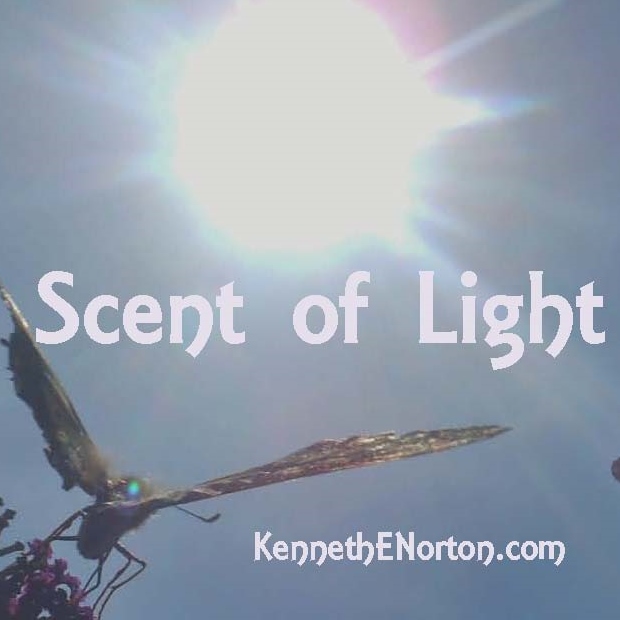 ~~~~~~~~  ~~~~~~~~ Norton & Holtz Business Solutions  ~~~~~~~~  ~~~~~~~~ 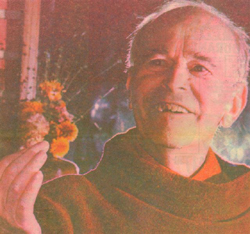 ~~~~~~~~ Published Books below: Click cover image for it's webpage:  Available at Amazon. For Hardbacks Contact us. --- 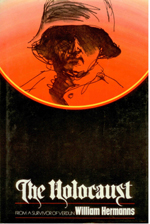 Inquire on out of print books ~~~~~~~~ |
|
|
|
|
|
|
||
|
Prose and Plays |
|
Poetry |
|
Events |
|
Website Info |
Website © Copyright 2011-2022 by Kenneth E. Norton Articles by William Hermanns (c) by William Hermanns Trust |
||||||